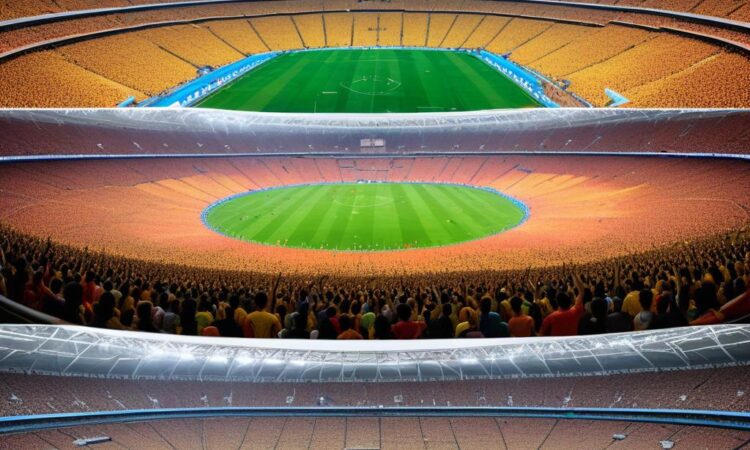The World Cup Final and its Social Impact: A Controversial Legacy
The recent World Cup Final, a spectacle watched by billions across the globe, concluded with a thrilling victory for [Winning Team]. However, the event’s legacy extends far beyond the final whistle, leaving a complex and often controversial imprint on the world stage. While the tournament generated significant economic activity and captivated global audiences, it also sparked intense debates surrounding its hosting rights, human rights concerns in the host nation, and the often-unruly behavior of large numbers of fans. This multifaceted impact demands a thorough examination, considering the global reach and influence of such a major sporting event.
The Controversy of Hosting Rights: A Precursor to Conflict
The awarding of the World Cup hosting rights to [Host Nation] was itself a source of significant controversy. [Explain the controversy surrounding the bidding process, including allegations of bribery, corruption, or other ethical violations. Be specific and cite reputable sources if possible. This section should be approximately 500-750 words long, detailing the accusations, investigations, and the resulting impact on public perception of the tournament.]. The process highlighted the often opaque nature of international sporting governance and fueled concerns about the ethical implications of prioritizing economic gain over human rights and social responsibility. The controversies that arose before the tournament even began cast a long shadow over the event, influencing how it was perceived and received by many viewers worldwide.
Human Rights Concerns in the Host Nation: A Stain on the Celebration
[This section should focus on human rights issues within the host nation, such as migrant worker rights, LGBTQ+ rights, women’s rights, or freedom of speech. Be specific, citing specific incidents, statistics, and reliable sources. This section should also be approximately 500-750 words, discussing the impact these issues had on the tournament and the global conversation surrounding it. Include counterarguments and different perspectives where applicable, demonstrating a balanced approach.]. The juxtaposition of extravagant celebrations with the ongoing struggles faced by marginalized communities created a dissonance that many found difficult to reconcile. The global spotlight on the tournament brought these issues into sharp focus, prompting widespread calls for greater accountability and transparency from both the host nation and FIFA.
Fan Behavior: A Reflection of Societal Attitudes?
[This section addresses the behavior of fans attending and watching the tournament, focusing on incidents of violence, discrimination, or other negative behaviors. This section should be approximately 500-750 words. Analyze the causes of such behavior, discussing the role of alcohol, nationalism, social media, and other factors. Include discussions on the measures taken (or not taken) to mitigate these issues and their effectiveness. The section should also explore the broader societal implications of such behavior and the responsibility of sporting organizations to ensure a safe and inclusive environment for all attendees and viewers.]. The actions of a minority unfortunately overshadowed the positive contributions of many respectful fans, highlighting the challenges of managing large crowds and promoting responsible fan behavior during such high-profile events.
Economic Impact: A Double-Edged Sword
[This section analyzes the economic impact of the World Cup on the host nation and the global economy. This section should be approximately 500-750 words. Discuss the positive effects, such as tourism, infrastructure development, and job creation. However, it should also acknowledge the potential negative impacts, such as the unsustainable nature of some projects, the displacement of local communities, and the unequal distribution of economic benefits. Include relevant data and statistics to support your analysis. The section should also explore the long-term economic sustainability of such mega-events.]. The substantial economic benefits must be weighed against the social and environmental costs, raising questions about the true value and lasting impact of such a large-scale undertaking.
Conclusion: A Legacy of Contradictions
[Summarize the key findings of the article, emphasizing the contradictions and complexities of the World Cup’s social impact. This concluding section should be approximately 250-500 words. Reiterate the importance of considering both the positive and negative aspects of the event. Suggest potential solutions and recommendations for future tournaments to address some of the ethical and social challenges identified. Discuss the broader implications for international sporting events and the responsibility of governing bodies to prioritize human rights and social responsibility over purely economic gains.]. The World Cup Final 2023 ultimately serves as a potent reminder of the intricate interplay between sport, politics, economics, and social justice. Moving forward, a more critical and transparent approach to hosting such major events is urgently needed to ensure a truly positive and sustainable legacy for all.

